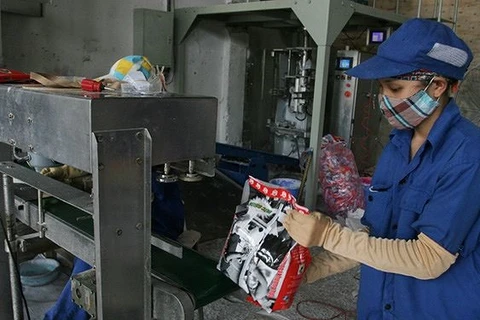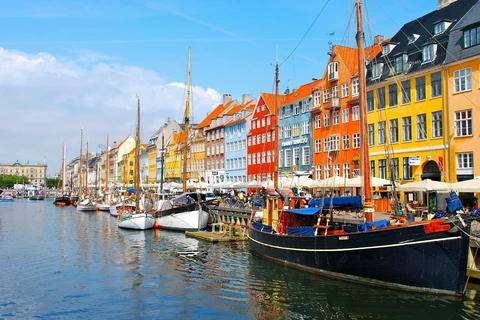 The conference held in Hanoi on December 12 confers private investment in implementation of Vietnam's green growth strategies. (Photo: VNA)
The conference held in Hanoi on December 12 confers private investment in implementation of Vietnam's green growth strategies. (Photo: VNA) Hanoi (VNA) – Encouraging private investment in green growth projects was among key topics at a conference to review mid-term implementation of the national green growth strategy in the northern region in Hanoi on December 12.
The discussion of the topic aims to provide updates on the current status of national policies and initiatives for calling private investment in green growth, and outlined obstacles and challenges for the private sector, thus making recommendations to boost the green growth in the region.
At the conference, experts said the public budget only afford to cover 30 percent of expenditure for green growth in the 2016-2020 period, and it was essential that the remaining must be borne by the private sector.
“The public fund can and should serve only as a catalyst, creating favourable conditions for private investment,” Pham Hoang Mai, head of the science, education, natural resources and environment department, under the Ministry for Planning and Investment.
According to the Government, based on marginal abatement cost curve (MACC), towards 2020, Vietnam needed at least 31 billion USD in investment for green growth in several polluting industries, except agriculture. As Vietnam ratified the Paris agreement on climate change in 2016, the country needs to honour its commitment to cut back on green-house-gas emissions, which would require about 21 billion USD.
Yet, despite a fairly comprehensive system of policies and institutions to call for private sector investment and enthusiasm, many challenges stand in the way, Inertia in decision-making level, the limited number of start-ups in green energy, difficulties in accessing international green-development funds, and short-term vision over long-term ones are persistent problems.
One example, according to Le Duc Chung, a senior expert in the Ministry of Planning and Investment, in the south-central provinces where solar potentials are significant, the authorities remained overly cautious on the promotion of this cleaner form of energy. Binh Thuan, for example, in its plan, officially accounts for 850 megawatt (MW), a meager five percent of the total output that interested private investors can produce.
On the other hand, private businesses, despite being aware of the benefits of green growth, remain reluctant to place their investments in what, in their eyes, are “risky and potentially disrupting changes”.
Chung cited the case of offshore fishing companies hesitating to switch to LED lighting despite studies pointing out that such move could save 100 million USD a year.
The planning ministry said it wanted the National Assembly to be more persistent in asking Governmental agencies to follow through on green-growth tasks and commitments. It also called for tighter implementation of environmental taxes for polluters via carbon taxes, easier-to-access financial support and policies for stakeholders as well as monitoring mechanisms.
At the conference, UNDP representatives, Global Green Growth Institute and the German government’s international cooperation agency GIZ pledged to help northern provinces devise green growth models exclusively for their localities.-VNA
VNA
























